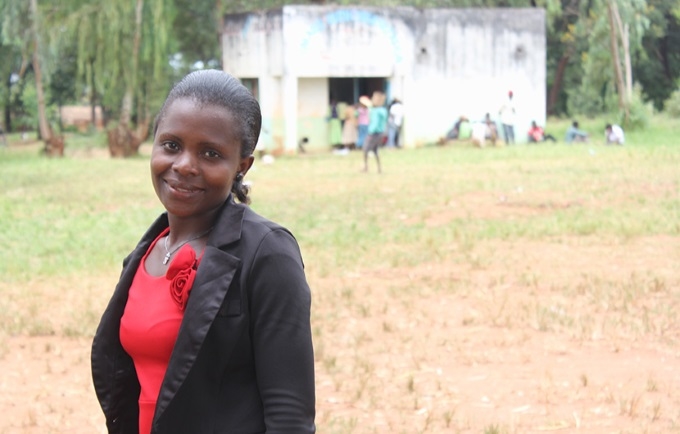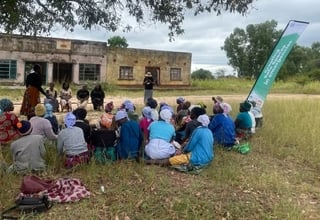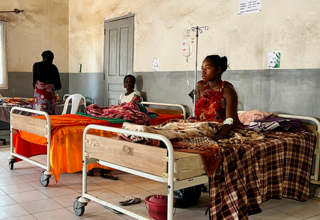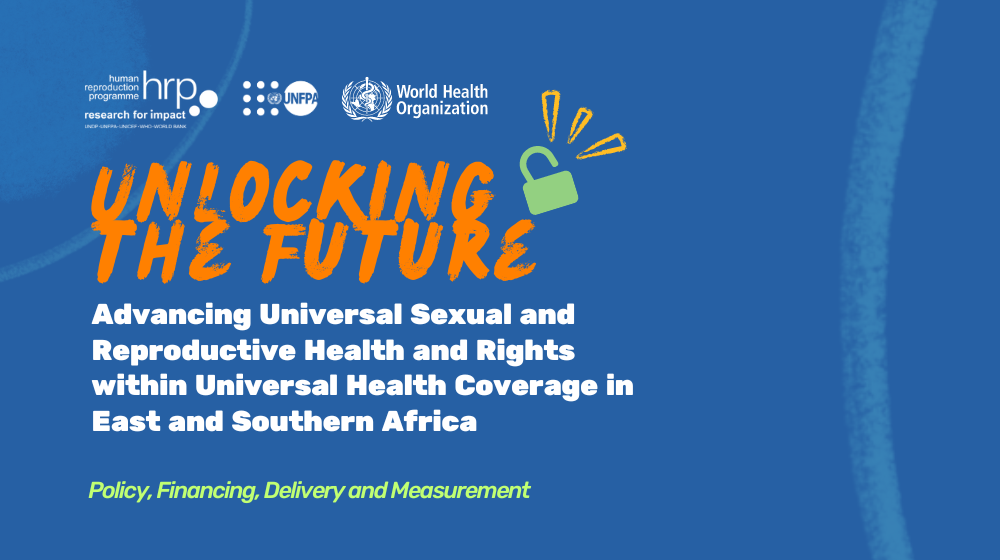MANGOCHI, Malawi — In 2010, Sophie was just 13 years old when her older sister and guardian died suddenly, and her world was shattered. She dropped out of school and moved to the village of Namwera in order to take care of her six younger siblings. Her parents were too frail to provide for their family, while her late sister’s husband had abandoned them when his wife became ill.
“My parents are too poor to send me to school, but I walk a long distance to attend youth-friendly services organized by Safeguard Young People in order to widen my chances for a brighter future,” says Sophie.
It was in Namwera that Sophie first heard about Safeguard Young People (SYP), a regional youth programme focusing on improving the sexual and reproductive health of young people aged 10 to 24 years. Every Thursday she walks 11 kilometers to Namwera Health Centre to take part in SYP’s youth-friendly activities.
UNFPA supports the Ministry of Health’s Reproductive Health Directorate (RHD) to implement the programme in the five districts of Mangochi, Dedza, Nkhatabay, Chiradzulu Chikwawa and Mchinji.
Malawi has a high proportion of young people, with youth aged 10-29 years old accounting for 39 per cent of the population[1].
SYP creates an environment for young people to access various sexual and reproductive health services, and receive comprehensive sexuality education. It promotes youth leadership and capacity building of youth representatives to improve protection of youth rights.
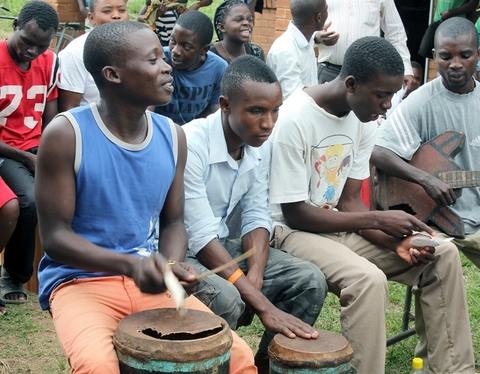
Boys playing music at Namwera centre. Photo: UNFPA Malawi
Young people from the district can register and visit the centre to receive comprehensive information on sexual and reproductive health issues, and also have access to family planning methods, including condoms and treatment for sexually transmitted infections.
The members take part in various indoor and outdoor games. Some of the recreational items distributed at the centre are netball balls, soccer balls, soccer nets and board games such as snakes and ladders, draughts and chess. These supplies have improved the quality of services provided in the centre, and have attracted numerous young people to sign up for the programme. In addition, they also engage in small-scale farming as an income-generating activity.
Since joining the programme, Sophie has high hopes for her future: “I plan to run for youth parliamentary office again,” says Sophie. “I thank SYP for my little achievements in life, and my main goal now is to become the first female lawyer in my area, and be able to contribute to making laws that protect children.”
In 2012, she was elected to the Youth Parliament Masongola constituency. Through her involvement in SYP and parliamentary activities, she also secured a National Aids Commission scholarship – and she passed her junior certificate exams. She is a trained peer educator at SYP and works hand in hand with local communities to help end harmful cultural practices. She also encourages her fellow young people to remain in school to get an education in order to secure a better future.
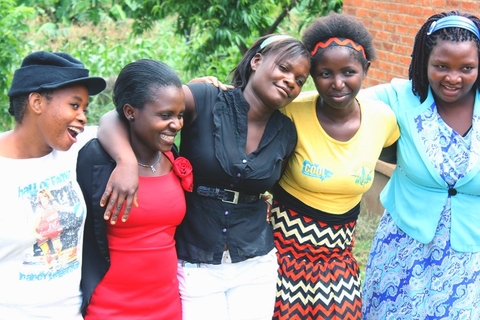
Sophie (second from left) with her peers on the SYP programme. Photo: UNFPA Malawi
